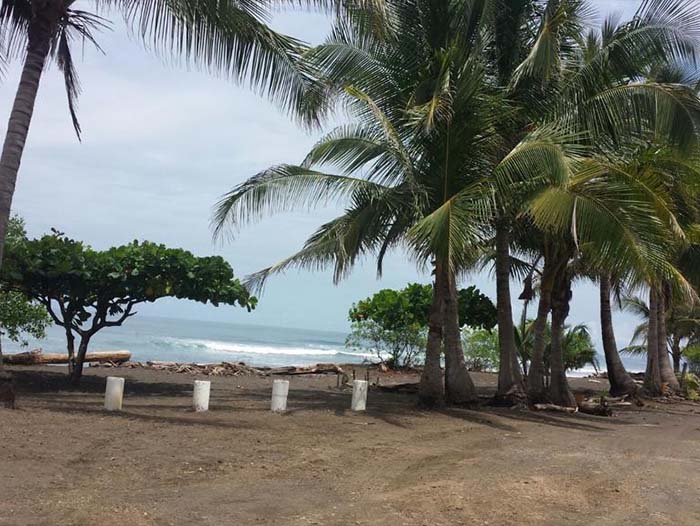Before Buying Property in Costa Rica You Should Know
Investing in property in Costa Rica can be a lucrative opportunity. However, before diving into the Costa Rican real estate market, it is essential to have a solid understanding of its dynamics and key factors that influence property prices.
Understanding the Costa Rican Real Estate Market
Costa Rica’s real estate market has experienced remarkable growth in recent years, attracting investors from all corners of the globe. The country’s natural beauty and stable economy have been major draws for those seeking lucrative investment opportunities.
When it comes to property prices in Costa Rica, several key factors come into play. One of the most influential factors is the location of the property. Properties situated in popular tourist destinations or near breathtaking coastline tend to command higher prices due to the high demand from both locals and international buyers.
However, location is not the sole determinant of property values. Infrastructure development also plays a crucial role. Areas with well-developed roads, reliable utilities, and modern amenities tend to have higher property values. Additionally, proximity to essential facilities such as schools, hospitals, and shopping centers can significantly impact property prices.
Before making any investment in Costa Rican real estate, it is essential to carefully consider these factors. Conducting thorough research and seeking expert advice can help investors make informed decisions that align with their goals and expectations.
Predicting Future Market Trends
While predicting future market trends with absolute certainty is challenging, analyzing current market conditions and economic indicators can provide valuable insights for investors. In the case of Costa Rica’s real estate market, several factors are worth monitoring to gauge potential future trends.
One crucial factor to consider is the growth of tourism in the country. Costa Rica’s stunning landscapes, biodiversity, and adventure opportunities have made it a popular destination for travelers worldwide. As tourism continues to flourish, it can have a direct impact on the demand for real estate, potentially driving property prices higher.
Government policies and regulations also play a significant role in shaping the real estate market. Keeping an eye on any changes in laws or incentives related to property ownership and investment can help investors anticipate market shifts and adjust their strategies accordingly.
Furthermore, infrastructure development is a key indicator of a thriving real estate market. The government’s commitment to improving transportation networks, expanding public services, and enhancing overall connectivity can attract more investors and contribute to the appreciation of property values.
By staying informed about these factors and conducting thorough market analysis, investors can make more informed decisions regarding their Costa Rican real estate investments. While the market may fluctuate, a well-researched and strategic approach can increase the chances of achieving long-term success in this vibrant and promising market.
Legal Aspects of Buying Property in Costa Rica
Understanding the legal aspects is vital when purchasing property in Costa Rica. Familiarizing yourself with the relevant property laws and regulations is essential to ensure a smooth transaction.
Costa Rica, known for its stunning natural beauty and welcoming culture, offers a unique opportunity for individuals looking to invest in real estate. However, before embarking on this exciting journey, it is crucial to delve into the legal aspects of buying property in this Central American paradise.
Understanding Property Laws
Costa Rica has specific property laws that differ from other countries. These laws are designed to protect both buyers and sellers, ensuring fair and transparent transactions. It is crucial to familiarize yourself with these laws to avoid any legal complications that may arise during the buying process.
One key aspect to consider is the concept of “concession land.” In Costa Rica, certain coastal areas are considered public land, and individuals can acquire the right to use and develop these properties through a concession. Understanding the intricacies of concession land and its implications is essential when considering coastal property investments.
Additionally, it is highly recommended to hire a reputable lawyer who specializes in real estate transactions in Costa Rica. A knowledgeable attorney can guide you through the legal complexities, review contracts, conduct due diligence, and ensure that your interests are protected throughout the buying process.
The Role of Notaries in Property Transactions
In Costa Rica, notaries play a vital role in property transactions. These legal professionals are responsible for verifying the authenticity of the property title and ensuring that all necessary documents are in order. Their involvement adds an extra layer of security and trust to the buying process.
When purchasing property in Costa Rica, it is essential to work with a trustworthy notary. A reputable notary will conduct a thorough examination of the property’s title, ensuring that there are no liens, encumbrances, or legal issues that could affect your ownership rights. They will also oversee the drafting and signing of the purchase agreement, ensuring that all parties involved comply with the legal requirements.
Furthermore, notaries in Costa Rica are responsible for registering the property transfer with the Public Registry. This step is crucial as it officially recognizes you as the new owner and provides legal protection against any future claims or disputes.
By working closely with a reliable notary, you can navigate the intricacies of property transactions in Costa Rica with confidence, knowing that your investment is legally sound and secure.
Financing Your Costa Rican Property
Obtaining suitable financing options is an essential consideration when buying property in Costa Rica. Understanding mortgage options and the associated taxes and fees is crucial before making a financial commitment.
Exploring Mortgage Options
There are various mortgage options available for purchasing property in Costa Rica. Researching different lenders and understanding their terms and conditions is important to make an informed decision. Consulting with a mortgage expert can help you navigate through the options.
Understanding Taxes and Fees
It is important to be aware of the taxes and fees associated with buying property in Costa Rica. These may include transfer taxes, property taxes, and attorney fees. Understanding the full financial implications upfront will help you plan your budget accordingly.
Choosing the Right Location in Costa Rica
Choosing the right location in Costa Rica is crucial to ensure your property investment meets your expectations.
Coastal vs. Inland Properties
Deciding between coastal and inland properties depends on your personal preferences and investment goals. Coastal properties offer breathtaking views and proximity to beaches, making them popular among tourists. Inland properties, on the other hand, may provide a more tranquil living experience.
Urban vs. Rural Living
Consider whether you prefer living in a bustling urban environment or a serene rural setting. Urban areas offer convenience, access to amenities, and a vibrant lifestyle. Rural areas may provide a quieter and more relaxed living experience.
Building vs. Buying an Existing Property
Deciding between building your own property or purchasing an existing one is an important consideration that depends on various factors.
Pros and Cons of Building Your Own Home
Building your own home allows you to customize it according to your preferences and requirements. However, it requires careful planning, finding reliable contractors, and overseeing the construction process.
Evaluating Existing Properties
Buying an existing property offers the advantage of immediate ownership. However, it is essential to evaluate properties thoroughly, considering factors such as condition, maintenance, and potential renovation costs.
Before buying property in Costa Rica, it is crucial to consider all the above aspects carefully. Understanding the real estate market, legalities, financing options, location preferences, and building vs. buying considerations will empower you to make a well-informed investment decision.


Leave A Comment